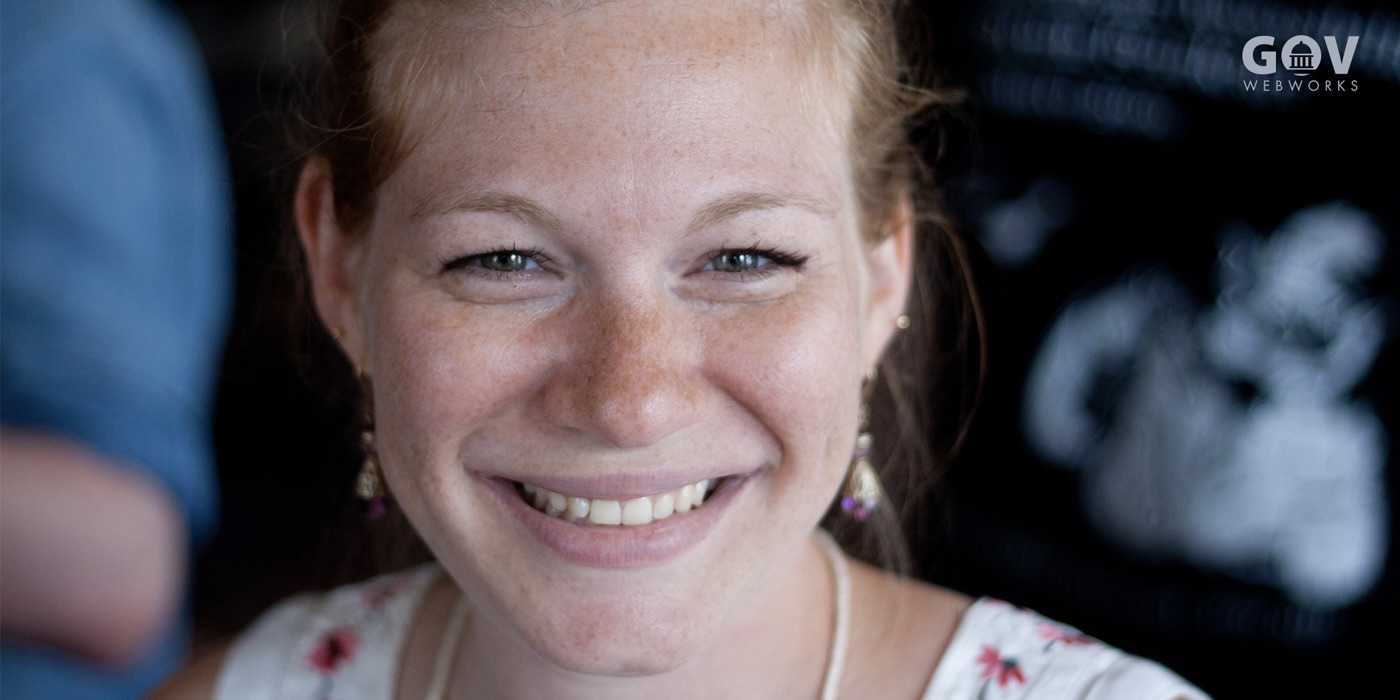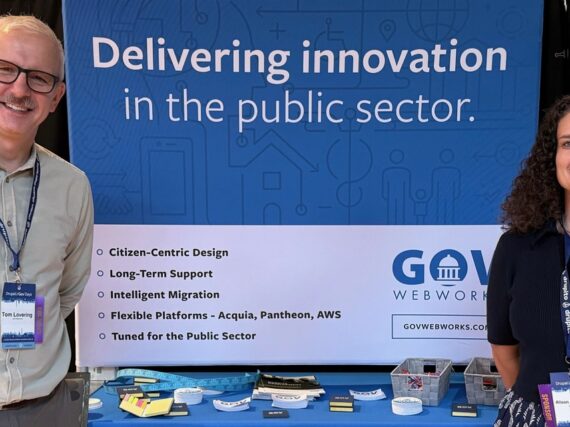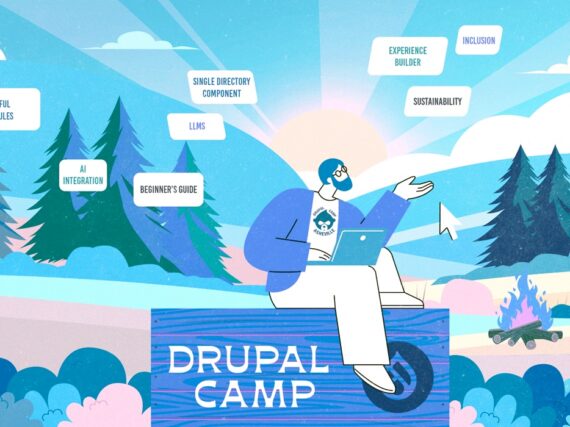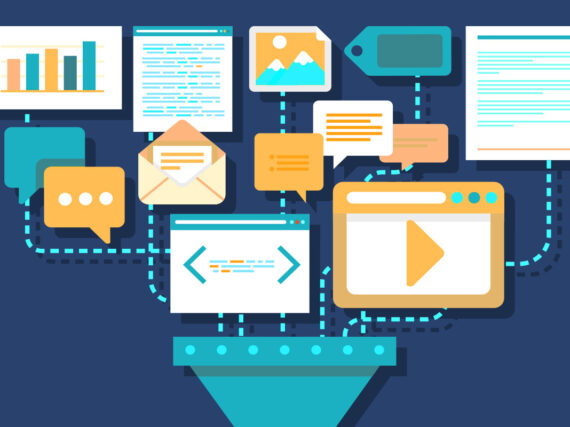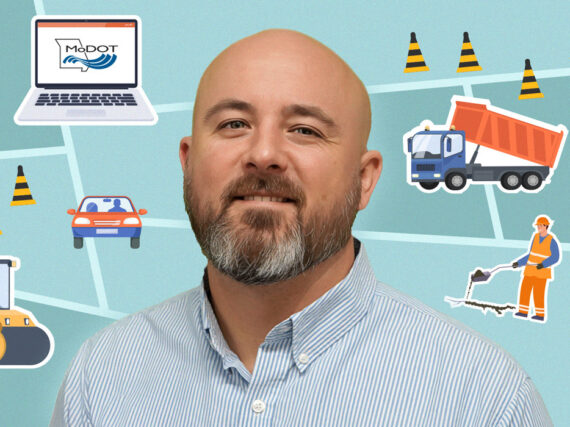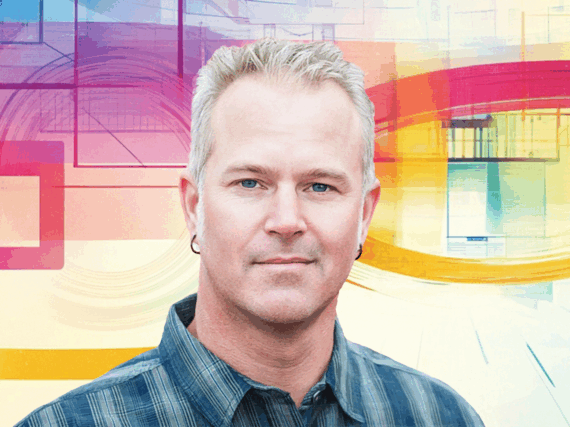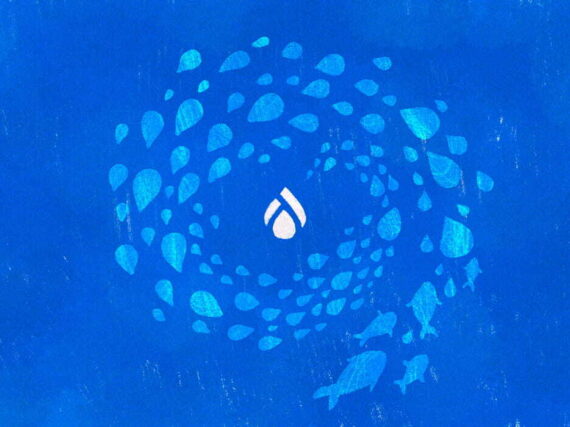Our Drupal team leader, Hellen Fitzpatrick, first heard about the SDGs and IDGs at a NEDCamp keynote on Drupal’s designation as a Digital Public Good (DPG). What are the SDGs and IDGs, you ask? In the presentation, executive coach Whitney Hess shared that the Sustainable Development Goals (SDGs) were defined by the United Nations to address environmental and social issues as part of a comprehensive plan to achieve a sustainable world by 2030.
In an attempt to jumpstart progress, an independent group of professionals across Europe came together to craft a set of what they call the Inner Development Goals (IDGs). The IDGs are defined as the “abilities, qualities or skills we need to develop among individuals, groups and organizations that play crucial roles in working to fulfill the SDGs.” The IDG framework has five dimensions (Being, Thinking, Relating, Collaborating, Acting) and 23 skills that focus on the inner growth and development needed to help companies and governments make progress toward the SDGs.
Hellen left the event wanting to share the IDGs with her Drupal team. The acronym seemed to signal a lofty shift. No longer were Drupal developers simply website coders, they had the opportunity to view themselves as change makers. In the effort to understand the IDGs better, Hellen spoke with Whitney Hess to learn more.
Hellen Fitzpatrick: How do the Inner Development Goals (IDGs) relate to the Sustainable Development Goals (SDGs)?
Whitney Hess: When Drupal went through the process of being designated as a Digital Public Good, one of the primary indicators for the designation is the extent to which the technology is helping to advance progress towards the UN’s Sustainable Development Goals. We can’t seem to achieve these goals if no one changes anything about themselves, about how they’re running their businesses, running their governments, et cetera. So this movement of professionals in Europe began to craft a set of principles, goals, and ideas around the kinds of qualities that we need to embody if we’re going to make progress with the SDGs. This resulted in the Inner Development Goals framework.
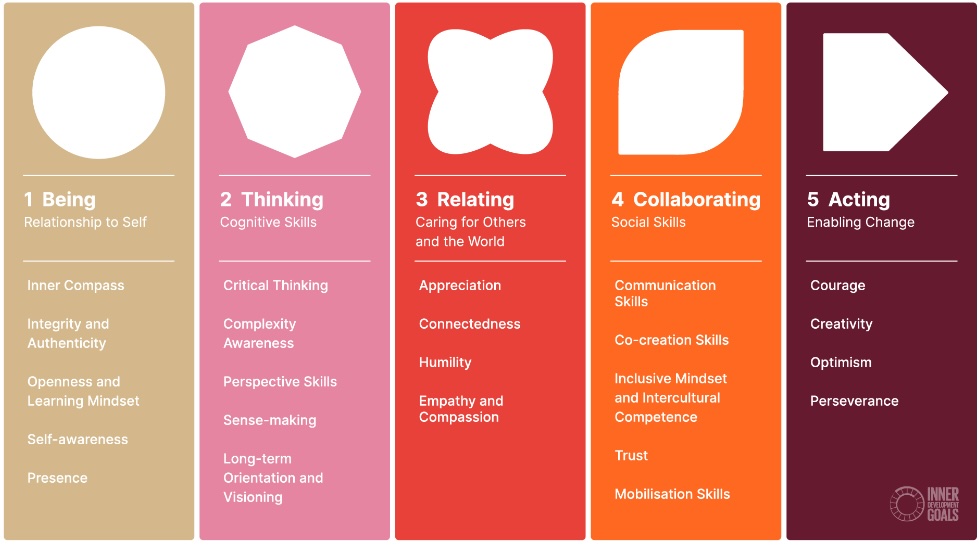
Are the IDGs for leaders and coaches, or for everyone?
I think every one of us has a responsibility to take this in and look at it. What are my strengths? Where are my blindspots? What can I focus on committing to and changing in the way I show up in the world?
It’s also important for leaders especially because the most pressing issues are around how big decisions are made, how we make our money, how we spend our money, who we spend our money with, how we measure our success. Those are key business decisions being made by leaders. The intent is to reach heads of government and government agencies, the subset of the population that has the power to have the greatest domino or ripple effect on the rest of us.
I use the term ‘leader’ perhaps more loosely than some. It doesn’t necessarily mean someone in the C-suite. It doesn’t necessarily mean someone who has direct reports or is the head of the department. I see it as someone who takes personal initiative to change the way things are done, to bring their value system into the four walls of the business, and to change the way that the business makes decisions based on those values. So I could argue that you and your team are all leaders in that sense. I think that we all need to be taking personal responsibility. And in fact, it’s that groundswell that is ultimately what’s going to influence these key decision makers in the first place.
How do you get people involved?
The number one rule of coaching is people cannot be coached by force. People have to self initiate their own development. HR telling you that you need a coach to address your performance doesn’t work. It really has to be intrinsic, it has to come from within.
So even with you and your team, which I love that you’re initiating this, if someone is not already on the path to their own self development, if they don’t see themselves on a journey of self improvement, they may not be of the mindset that we are always growing and changing and we can choose the direction in which we grow. So if you show them a framework and suggest that they identify something to connect with and work on, well, they’re not necessarily going to grab onto and make real material progress.
So, how do you influence others?
There are a lot of resources, discussions, and people passionate about trying to answer that exact question of: how do we work with our clients to influence their behavior?
From my standpoint, when we embody the values we want to see, we can influence most effectively. It’s not really something to tell about, it’s something to show, to demonstrate, to model how effective it makes us at our work with our teams in our business.
That’s when other people start to clue into, gosh, what is she doing? What seems to be working? I want a piece of that. Now they’re pulling it, versus you pushing it.
If you show up embodying humility, empathy, clear communication, any of the specific IDGs that you have chosen to prioritize, that is much more effective.
What are some ways to feature this work?
If this is truly the case for your company, I think the most compelling story is to show that this is who we have always been, this is who we naturally are. This is who we hire for. This is who we love to work with. This is how we see our clients—and there’s this framework that happens to fit.
It’s not like we were being status quo and then someone told us we should do this thing called the IDGs, and now we’re all empathetic and humble. Rather, we had a good vibe and we couldn’t quite capture what it was. And then we found a framework, whether it’s the IDGs or something else. And it spoke to us because it put into words who we are in a way that we hadn’t named before.
Now that we’re naming it, we can be ourselves 100 times more because we see this as the future of doing business. Why? Because it’s better for us. We love coming to work every day. We love working together. We’re effective.
We have to change business as usual if we are going to have a future.
How can leaders encourage people to do this work?
The way we talk about these topics, in coaching or in professional development worlds, is very future-focused, about the effort to improve in certain ways. But we also need to take the time right now to stop and say, ‘Look at what we’ve done, look at what we’ve created that’s happening in the day-to-day.”
I would strongly encourage making lots of congratulations now. It’s not the self-congratulatory kind of, oh, “I reused that piece of paper, I’m so good for the environment.” It’s not performative. Rather, I hear you, Hellen, saying that people at your company are moved to do this work you do.
How you work together impacts people deeply and gives them a sense of meaning and purpose beyond what the service or product is that you are being paid to deliver. You can stop and name that and celebrate that and celebrate yourselves for the culture you have built and are building together. I think that is such an essential part of the process.
How can this work help government agencies?
You are pushing against a lot of things that have been in this culture for a long time. Especially in government, change happens slowly and there’s a lot of very strong status and power differentials and militarism and things that are the foundational organizational structures of this country built into our government.
But as a vendor, you have an opening. You have an opening because you’re getting to know people. You have an opening because you’re getting to know a work product in a very intimate way. You have an opening because what you are gifting them with is not just the brand new product, but the process by which they maintain it over time and that touches who they are, and how they work, and how they organize, and how they show up to work, and how they collaborate, and how they relate to their content, and how they relate to the world.
That’s why Drupal got the designation as a Digital Public Good, because it isn’t just a bunch of software. If your company can conceive of itself as change agents for a better, safer, kinder, more prosperous world where we design for the future, then fabulous. It differentiates you and you make a tremendous impact.
How are Drupal developers change agents?
You are in a position to help your team learn that their value is far greater than their craft. Their value is their whole humanhood. And they have the ability to develop themselves from a non-technical standpoint as well.
Your developers have the option to be very conscious about the values that they are inherently molding into the clay through their hands. They’re putting energy into a product that’s being utilized by a government agency that is then being utilized by the masses.
And when people pull up that website or that app, there is an energy that they are receiving that came from the people who you guide and who you coach. So that energy we’re putting out there is being received somewhere, months or years later, thousands of miles away. And if we’re not conscious about what it is we’re putting out into the world, we may very well be engines of perpetuating systems and values that we don’t agree with. And that would be a shame. The work that you’re doing on what may seem like a very small scale has enormous global impact. That you are doing it consciously makes all the difference.
So, my hat’s off to you!
Learn more
Here’s how we plan to implement the IDGs at GWW:
- Being: Being on camera in meetings
- Thinking: Discovery and planning phases on projects
- Relating: Monday morning Traffic meeting shoutouts
- Collaborating: Daily scrum meetings and rituals
- Acting: Training and launching clients on our deliverables
Inner Development Goals resources:
- Inner Development Goals Framework
- Orienting inner development in organizations
- Corporate Partnerships
- Partner Information
- Going Deeper
More info:
- Drupal officially achieves recognition as a Digital Public Good
- The Inner Work of Being a Public Good, NEDCamp 2023 Keynote with Whitney Hess
- Contact us for a free Drupal consultation
